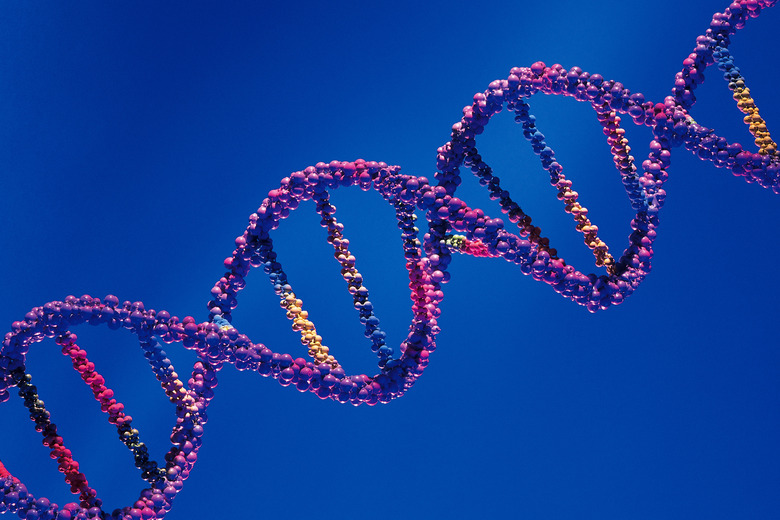Recombinant DNA Technology For Vaccine Development
Historically, vaccines were first based on weakened or inactivated versions of live viruses, but these had some disadvantages. In some instances, for example, the impaired virus can revert back to an active virus and cause the illness it was designed to fight. Modern advances in genetics and recombinant DNA, or rDNA, technology have enabled scientists to create vaccines that no longer have the potential to cause disease. Three different types of preparations based on rDNA vaccine technology are used for animal and human vaccinations.
Genetically Modified Viruses
Genetically Modified Viruses
Scientists have used rDNA vaccine technology to genetically modify live viruses so that they can still elicit an immune response, but not be pathogenic. This requires knowing what genes in the virus are associated with viral replication and subsequently deleting or knocking those genes out. A genetically modified virus that can no longer replicate still has surface proteins or antigens that are recognized as being foreign to the host, promoting an immune response to the modified virus.
Recombinant Viral Proteins
For those viruses in which the protein or antigen that induces the immune response is known, the viral DNA that codes for that particular protein can be isolated, cloned and used to make viral protein in a test tube. Large quantities of viral protein synthesized from the cloned DNA is then purified and used as the vaccine. Synthesized protein from cloned DNA, or a set of viral proteins used for immunizations, are referred to as recombinant inactivated vaccines.
TL;DR (Too Long; Didn't Read)
Be sure to avoid the common misspelled and misused term: _recumbent_ DNA
Genetic Vaccines
Genetic Vaccines
Genetic vaccines are comprised of stripped down pieces of viral DNA that are engineered to initiate the expression of a protein antigen specific to the disease after injection into the animal undergoing vaccination. These small viral DNA pieces are injected under the skin, after which the host cells take up the DNA. The DNA template is translated and viral proteins are made within the host cells. The host's immune system reacts is if it's been exposed to the disease itself and tries to fight it by making antibodies against the newly synthesized viral proteins.
TL;DR (Too Long; Didn't Read)
Vaccine definition: A substance introduced to the body to promote the production of antibodies and provide resistance against a disease.
Other Considerations
Other Considerations
Despite all the vaccines developed through rDNA technology, infectious diseases in animals and humans continue to be a worldwide problem. Selective pressure and natural selection lead to evolutionary changes in viruses that consequently produce new strains that current vaccines can no longer combat. There are also viruses for which vaccines do not exist because they are still poorly understood. Advances in biotechnology and large-scale efforts by the Viral Genomes Project at the National Center for Biotechnology Information, National Institutes of Health, have led to the sequencing of more than 1,200 different viral genomes. A genome is the complete set of genes found in a given organism. This ongoing sequencing initiative gives scientists new genetic information that will potentially make it easier to develop new vaccines through rDNA technology.
Cite This Article
MLA
Heeter, Kris. "Recombinant DNA Technology For Vaccine Development" sciencing.com, https://www.sciencing.com/recombinant-dna-technology-vaccine-development-21088/. 17 September 2018.
APA
Heeter, Kris. (2018, September 17). Recombinant DNA Technology For Vaccine Development. sciencing.com. Retrieved from https://www.sciencing.com/recombinant-dna-technology-vaccine-development-21088/
Chicago
Heeter, Kris. Recombinant DNA Technology For Vaccine Development last modified March 24, 2022. https://www.sciencing.com/recombinant-dna-technology-vaccine-development-21088/
